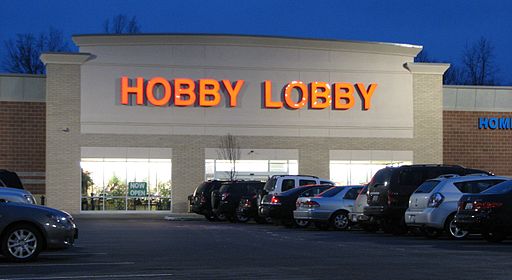(RNS) Federal officials have asked the U.S. Supreme Court to review the government mandate that private companies offer employees birth control coverage despite the business owner’s moral objections, with the company at the center of the suit owned by billionaire evangelical Christians.
Hobby Lobby’s lawsuit has been one of the most high profile of 60-some cases involving the Obama administration’s contraceptive mandate. The arts and crafts chain was founded by David Green, whom Forbes called “the biblical billionaire backing the evangelical movement.”
In June, the Obama administration issued final rules for the mandate that requires most employers to provide contraception at no cost. While there are exemptions for religious groups and affiliated institutions, there are no carve-outs for private businesses with religious owners.
Opponents of the mandate say that they will be forced to provide coverage they find morally abhorrent. Alliance Defending Freedom attorneys filed a federal lawsuit against the Obama administration Friday (Sept. 20) on behalf of four Christian universities in Oklahoma, where Hobby Lobby is also based.
Now that two different federal courts have issued contradictory opinions on the mandate, the issue is near certain to be decided by the Supreme Court.
Thursday’s (Sept. 19) petition from the Obama administration to the high court raises the issue central in the 1993 Religious Freedom Restoration Act, which says the government “shall not substantially burden a person’s exercise of religion” unless that burden is the least restrictive means to further a compelling governmental interest.
The administration is asking the Supreme Court to decide that for-profit corporations cannot deny their employees the health coverage of contraceptives to which the employees are otherwise entitled by federal law, based on the religious objections of the corporation’s owners.
“The United States government is taking the remarkable position that private individuals lose their religious freedom when they make a living,” said Kyle Duncan, general counsel of the Becket Fund for Religious Liberty and lead lawyer for Hobby Lobby.
“We’re confident that the Supreme Court will reject the government’s extreme position and hold that religious liberty is for everyone — including people who run a business.”
In June, a federal court in Oklahoma ruled in Hobby Lobby’s favor, saying that corporations have free exercise rights, and that the contraceptive coverage mandate substantially burdened those rights without a compelling governmental interest.
In a separate case earlier this month, a federal court in Colorado also granted a preliminary injunction to a for-profit corporation and an evangelical owner who have religious objections to contraceptives they believe cause abortions.
In the Colorado case, Briscoe v. Sebelius, the court had initially refused to grant a temporary restraining order in the case but issued a new decision after the Oklahoma court decided the Hobby Lobby case.
The government’s petition to the Supreme Court came the same day as a petition in another case involving a challenge to the HHS mandate involving a family-owned woodworking business.
The Philadelphia-based 3rd U.S. Circuit Court of Appeals rejected the business’s challenge in July, ruling that a business organized to earn a profit cannot exercise religion, so the business cannot claim religious protection.
“The chances are strong that the Court will agree to rule on one or more of the challenges, since federal appeals courts are now split on the question,” Supreme Court watcher Lyle Denniston wrote on Scotusblog.
If the Supreme Court grants a petition to hear the case, the case would be argued and decided before the end of the court’s term in June 2014.






